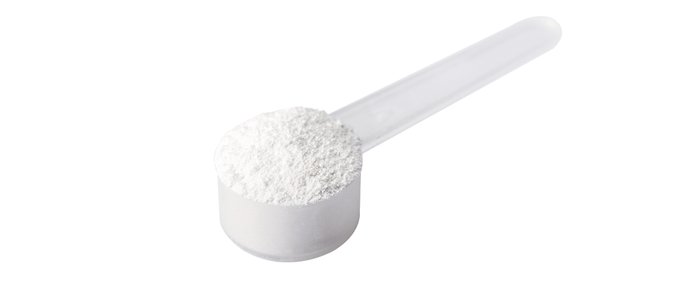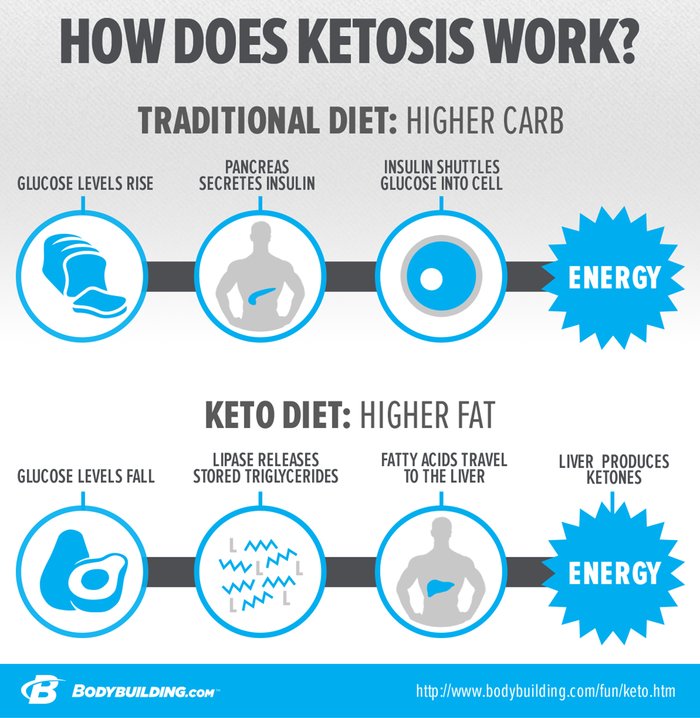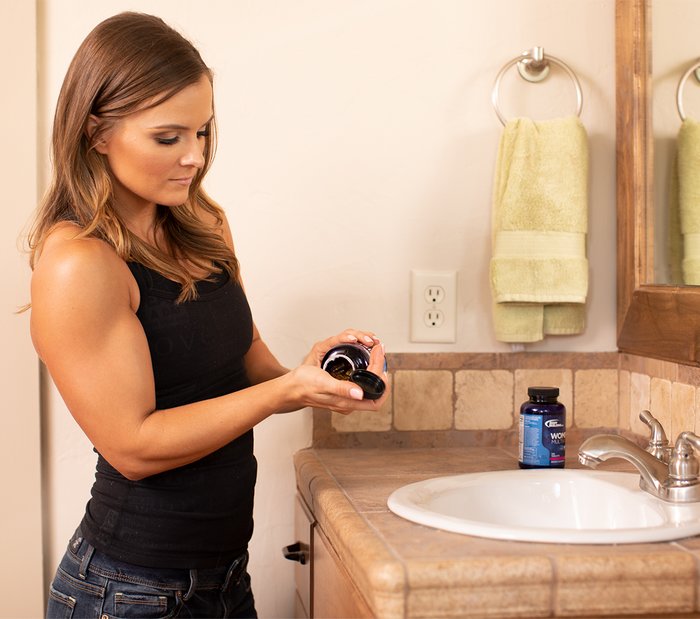Ask The Supplement Expert: Is Creatine OK With Keto?
Q: I've seen creatine recommended as a supplement worth taking while following a ketogenic diet, but I'd like a deeper explanation. Is there any reason not to take creatine while keto?
This is really two questions wrapped up in one: Will creatine alter the effectiveness of a ketogenic diet in any way, and will the ketogenic diet alter the effectiveness of creatine? The answers are very different, so let's address them one by one.
Will creatine impact my keto diet?
I see no reason why creatine—no matter if it's consumed as creatine monohydrate, phosphate, dimalate, pyruvate, nitrate, or HCL—would pose a problem to a ketogenic diet. None of those forms of creatine use maltodextrin or dextrose as a drying agent, so there should be no "hidden" carbs present. However, I still recommend that ketogenic consumers purchase a stand-alone, unflavored form of creatine and consume it with water or a keto-friendly beverage. Once you start adding in extra ingredients beyond the creatine, all bets are off.
Metabolically, there's also no reason to believe that taking creatine would disrupt the benefits of a keto diet, because the energy systems affected by creatine and ketones aren't in competition.

Ketones, which your body produces when you’re following a ketogenic diet, are replacing the short- and intermediate-term energy needs that are normally fueled by carbs; a process clinically referred to as fast and slow glycolysis, respectively. Creatine, on the other hand, is largely helpful for those bursts of high-power, high-intensity output of less than 30 seconds. By about 6 seconds, fast glycolysis begins to kick in to support energy needs; under keto dieting, this fast-support fuel need should be in the form of ketones.
Thus, I don't see where taking creatine would blunt the benefits of a keto diet.
Does keto make creatine less effective?
This answer requires a bit more unpacking. At first glance, it may seem like a ketogenic diet would dovetail perfectly with creatine. After all, most ketogenic diets call for only a moderate intake of animal protein—your major dietary source of creatine—and replace that protein with fat, fat, and more fat. Now's the time you need creatine most of all, right?

Unfortunately, it's not as simple as that. I'll admit from the start that no studies have directly assessed the effects of creatine when used in combination with a ketogenic diet. However, some evidence suggests the benefits of creatine may actually decrease as your ketogenic diet ratio of fats to protein and carbs increases.
Here's how that might happen.
Creatine: A refresher
When we talk about creatine and its benefits, it all comes down to its role in the creation of the currency of cellular energy, which is adenosine triphosphate or ATP. Your muscles only have enough ATP immediately available for about the first few seconds of high-intensity exercise and neuromuscular firing. Therefore, the more creatine within your cells, the greater the amount of its high-energy phosphate form, creatine phosphate, and the faster ATP can be regenerated.
That rapid regeneration is what allows you to push out a few extra reps, sprint farther before exhaustion, and, more generally, perform a greater total volume of high-intensity work.
However, in 1999, researchers from the Brookhaven National Laboratory, in New York, and the University of Alabama Birmingham reported that children with epilepsy who were placed on a ketogenic diet realized significant increases in creatine phosphate concentrations within the active regions of the brain. Their research confirmed prior rodent data that had also shown that ketogenic diets improved energy metabolism.[1]

More recently, a rodent study suggests that the increase in cellular energy and creatine within brain cells is more pronounced in response to a ketogenic diet that follows a 9:1 ratio of fats to protein and carbs as opposed to a 5:1 ratio.[2]
In other words, the greater percentage of fat in your diet, it appears, the greater the rise in your intracellular creatine stores.
Is keto boosting your creatine levels?
Assuming what's been observed in brain tissue similarly applies to skeletal muscle, then you may already be getting a boost in intracellular creatine if you're following a keto diet. The higher your diet is in fat versus protein and carbs, the greater the effect. Maybe.
Again, recall that there hasn't been a study looking specifically at creatine supplementation and the ketogenic diet. It's possible that what was the case for these rats may not be the case for you, or me, or any other person. But yes, it's also possible that going keto may turn you into one of those infamous "creatine non-responders."
Until there's direct research on the topic, the best advice is to experiment and determine what works best for you. If you're currently taking creatine and going keto, reduce the dose or stop taking it altogether and see if you can notice a difference. If you've never taken creatine, then try a loading phase and see if your workout volume increases or your body composition changes. There's no real risk or downside here, except that the creatine may not work.
References
- Pan, J. W., Bebin, E. M., Chu, W. J., & Hetherington, H. P. (1999). Ketosis and epilepsy: 31P spectroscopic imaging at 4.1 T. Epilepsia, 40(6), 703-707
- Skoczen, A., Setkowicz, Z., Janeczko, K., Sandt, C., Borondics, F., & Chwiej, J. (2017). The influence of high fat diets with different ketogenic ratios on the hippocampal accumulation of creatine–FTIR microspectroscopy study. Spectrochimica Acta Part A: Molecular and Biomolecular Spectroscopy, 184, 13-22.














No comments